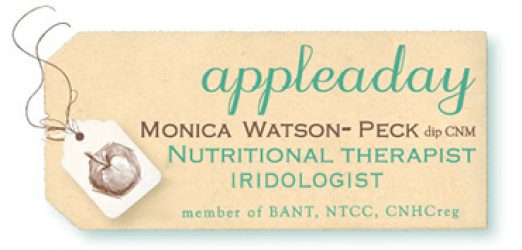Recently I saw two new clients who are having serious problems eating food. People with allergies and intolerances are frequent clients, however both these people have quite extreme issues going on.
One has been on such a restrictive diet for the past year he’s now frightened to try anything new, or for that matter anything old. He saw his doctor in January who said he had IBS and reflux; he was given antacids and told to watch what he eats.
All year this man has been watching his food, to the point that there isn’t much now left on his plate to watch. After seeing his doctor back in January, he began searching online, trying out too many different hypo-allergenic diets, gradually eliminating so many foods that he’s now left with a sad and paltry selection; some quite bizarre. He’s tired all the time, he tells me, and has lost too much weight. “My joints hurt. I don’t know what to eat coz everything gives me heartburn”. As he talks his leg jiggles the table between us.
Another new client the day after was a woman eating a reasonably healthy diet. After hearing, however, about her regular reactions that are verging on anaphalaxis, I was surprised – in awe! – at the variety of food she’s actually coping with.
Her allergy consultant has prescribed steroids which she takes when she has these severe reactions, worse and more frequent in recent times: A tightening in her chest and throat, swollen lips, breathlessness, sometimes a sudden drop in blood pressure. Scary stuff indeed. She’s had to swap meds several times as she reacts to those as well (no surprise).
“What can I eat?” she asked. Such an upbeat smiley woman, I would’ve loved to have given her an instant answer.
So, what to recommend when food becomes the enemy?
It may sound simplistic, or like some grandmother’s proverb but the logical start is, heal the gut. These words are repeated around the globe every day by most nutritional therapists I’m sure! And not just when food intolerances or bloating, flatulence, reflux and the like have become issues. Given that 70% of our immune system is in our gastrointestinal system, we should all be wanting our digestion to be as happy as possible.
Healing the gut might mean different things for different people. Removing certain gut microbes that shouldn’t be there, or are running rampant; increasing beneficial gut bacteria, strengthening the gut wall junctions, improving bile flow, increasing low levels of digestive enzymes or gastric acid a.o. Some or all of the above; depends on the individual.
At the same time, too, expanding that digestive picture to include other important players linked to the health of our GI tract – like the endocrine and nervous systems.
Food naturally will come into it, has to be part of the equation. Not just because we have to eat to survive, or because that’s why people seek out a nutritional therapist, to find out which foods they should eat.
More due to that well-worn saying, we are what we eat – so true (just a shame it’s lost its impact with over-use).
Food is a big part of healing the GI tract, of reducing chronic inflammation, of sustaining energy and improving well being. Some foods have the potential to scupper digestive, or overall health – just think how sugar can spike everything into chaos in the body when it takes over every meal and isn’t treated with caution, kept to just an occasional treat.
Other foods have the nutrients, the astonishing ability to improve our immune health. Those superpower foods, the likes of turmeric, green tea, fish oils, rainbow plant-based and fermented foods. Or simply eating a balanced diet with healthy fats and quality protein (not to mention the humble green leafy veg, my fave… I’ll stop there, lol!)
After this posed question – what can I eat? – a dialogue begins. Discussing family history and other current health issues; peeling back the layers and connecting as many dots as possible. Trying not to overwhelm with too much information – that can be hard. Working through food diaries and the results of lab tests. Seeing some of the puzzle pieces come together.
More often than not, the first step will focus on that healing of the gut as well as making careful changes to diet and invariably to lifestyle as well. Suggesting people change habits they may rely on because they are part of their history, or convenient, needs to be considered. The process has to be manageable and not too unfamiliar or threatening.
Removing, replacing, healing and restoring. Adapting to the individual, to that person’s specific needs. It’s a process, one step at a time. A sharing of knowledge where it’s important to respect the difficulties in play. Showing how food can be such a powerful medicine – as well as something delicious to eat! And always with the aim of helping clients make food their friend and not the enemy.
Appleaday’s Xmas gift this year, a 10% discount on first consultations – skype or 1:1 – during the month of Feburary 2020. Email or message me on social media for available dates & times.
(Please note: the two clients above gave me permission to use some of their information. I’ve kept it as general and vague as possible for privacy reasons).

